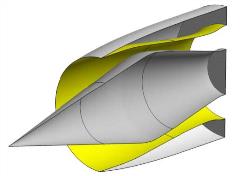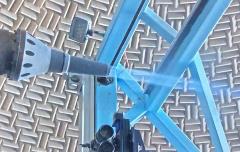AIAA Propulsion Aerodynamics Workshop (PAW)

PAW Objectives:
- Assess the numerical prediction capability (meshing, numerics, turbulence modeling, high-performance computing requirements, etc.) of current-generation CFD technology/codes for inlets, diffusers, and nozzles and their propulsion-specific boundary conditions.
- Develop practical modeling guidelines for CFD prediction of propulsion flow fields.
- Determine the elements of propulsion aerodynamics that are critical for modeling to enable the development of more accurate prediction methods and tools.
- Enhance CFD prediction capability for practical propulsion aerodynamic design and optimization.
- Promote education and mentoring of the next generation of propulsion CFD engineers.
General Information:
- PAW is patterned after the Drag Prediction Workshop (DPW) series. Participation in the propulsion workshop studies is not required to attend the workshop; everyone is welcome.
- Open, unbiased forums are included in the workshop to discuss the results and promote cross-pollination of best practices.
- The PAW6 test cases will include supersonic hot round jet plumes and supersonic inlets with boundary layer bleed.
- Student scholarships ($500) will be awarded to top student presentations as decided by the committee.
- Top presentations will be invited to submit papers for special conference session in 2024.
- Please visit https://paw.larc.nasa.gov/ for further workshop details and test cases.
Contact:
For more information or questions about the workshop, please contact the PAW committee at aiaapaw@yahoo.com
Organized by the AIAA Inlets, Nozzles & Propulsion Systems Integration Technical Committee.

AIAA Training Links
For information, group discounts,
and private course pricing, contact:
Lisa Le, Education Specialist (lisal@aiaa.org)
